The Recommendation seeks to facilitate the cross-border interoperability of electronic health records (EHRs) in the EU by supporting Members States in their efforts to ensure that citizens can securely access and exchange their health data wherever they are in the EU. it will help citizens to quickly access and share their health data with healthcare professionals, for example, when consulting a specialist or receiving emergency treatment in another EU country.
Secure access to and sharing of health data across the EU
Enabling citizens to securely access and share their health data across borders is one of the priorities of the Communication on enabling the digital transformation of health and care in the Digital Single Market. Moreover, the General Data Protection Regulation (GDPR) underlines that citizens have the right to access their personal data and provides the legal framework for the protection of personal data, setting out directly applicable rules for the processing of individuals’ personal data, including their health data. Rules for facilitating the access to safe and high-quality cross-border healthcare are provided for by the Directive on patients’ rights in cross-border healthcare.
Benefits of access to Electronic Health Records across borders
According to apublic consultation on digital health in 2017, respondents acknowledged the heterogeneity of EHRs as one of the main obstacles to exchanging health data and advancing digital health and care in Europe. Currently, most citizens cannot easily access their health data electronically across borders.
Better access to health data across borders will improve the quality and continuity of care offered to citizens. It will also lead to reduced healthcare costs, for example, by eradicating the unnecessary duplication of medical tests and procedures.
The Recommendation
The Recommendation sets out a framework for the further development of a European EHR exchange format that will enable citizens to securely access and exchange their health data across borders in the EU. Together with laying down a set of common technical specifications for the cross-border exchange of data, the Recommendation delineates a set of principles that should govern this exchange and a process for further development, monitoring and review.
The Recommendation underlines that moving towards interoperable EHRs in the EU should go hand in hand with ensuring data protection and security, in line with the GDPR, and full compliance with the cybersecurity framework.
A joint coordination process involving the Member States and the Commission is envisaged in order to support the further elaboration of the European EHR exchange format. This process will also engage all relevant stakeholders, including healthcare professional organisations, national competence centres, industry actors and patients groups, as well as other Union and national authorities.
Background
This Recommendation builds on several initiatives and projects put forward by the Commission and the Member States in their efforts to facilitate the cross-border exchange of health data in the EU.
Work on technical specifications for health data exchange has been carried out under the e-Health Digital Service Infrastructure (eHDSI), which is implemented by the Commission and the Member States through the Connecting Europe Facility (CEF) Programme. The eHDSIconnects eHealth national contact points allowing them to exchange two sets of health data: patient summaries and ePrescriptions. The first exchanges took place between Estonia and Finland in January 2019. 22 Members states are expected to exchange such health information by 2021. This Recommendation builds on and contributes to the further development of eHDSI, by facilitating the EU-wide interoperability and exchange of comprehensive electronic health records.
Important groundwork on the interoperability of EHRs was carried out in the framework of the project Smart Open Services for European Patients (epSOS), a large-scale pilot funded by the Commission between 2008-2014. epSOS tested the cross-border sharing of patient summaries and ePrescription, and with the support of the EXPANDproject paved the way to the roll out of the eHDSI. A number of other projects supported by the Commission, such as Antilope and HITCH, have also been instrumental to the development of the Refined eHealth European Interoperability Framework (ReEIF).
Health information on specific cases can currently be exchanged across borders through one of the 24 thematic European Reference Networks(ERNs). These networks enable virtual panels of clinicians to diagnose and treat patients suffering from rare, complex and low prevalence diseases. About 900 highly specialised healthcare units located in around 300 hospitals of 25 Member States (plus Norway) take part in the ERNs. Individuals do not have direct access to these networks. Healthcare providers refer patients to the relevant Network, with their consent and in accordance with the national health systems rules.
Related Documents
- Recommendation on a European Electronic Health Record exchange format
- Frequently asked questions
- Press release on EHR recommendation
- Factsheets:Impact of European Exchange format of Electronic Health Records
Further Information
- Transformation of Health and Care in the Digital Single Market
- Factsheet: Transformation of Health and Care in the Digital Single Market
- Infographic: Digital Health and Care in the EU
- European Commission’s Digital Single Market mid-term review
- Council conclusions on “Health in the digital society – making progress in data-driven innovation in the field of health”, adopted on 8 December 2017
- Council Conclusions on “Encouraging Member States driven Voluntary Cooperation between Health Systems”, adopted on 16 June 2017
- General Data Protection Regulation (GDPR
- Guidelines on Artificial Intelligence


